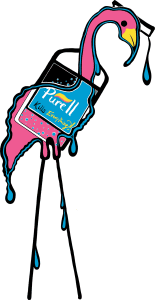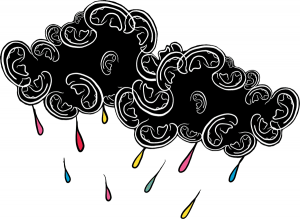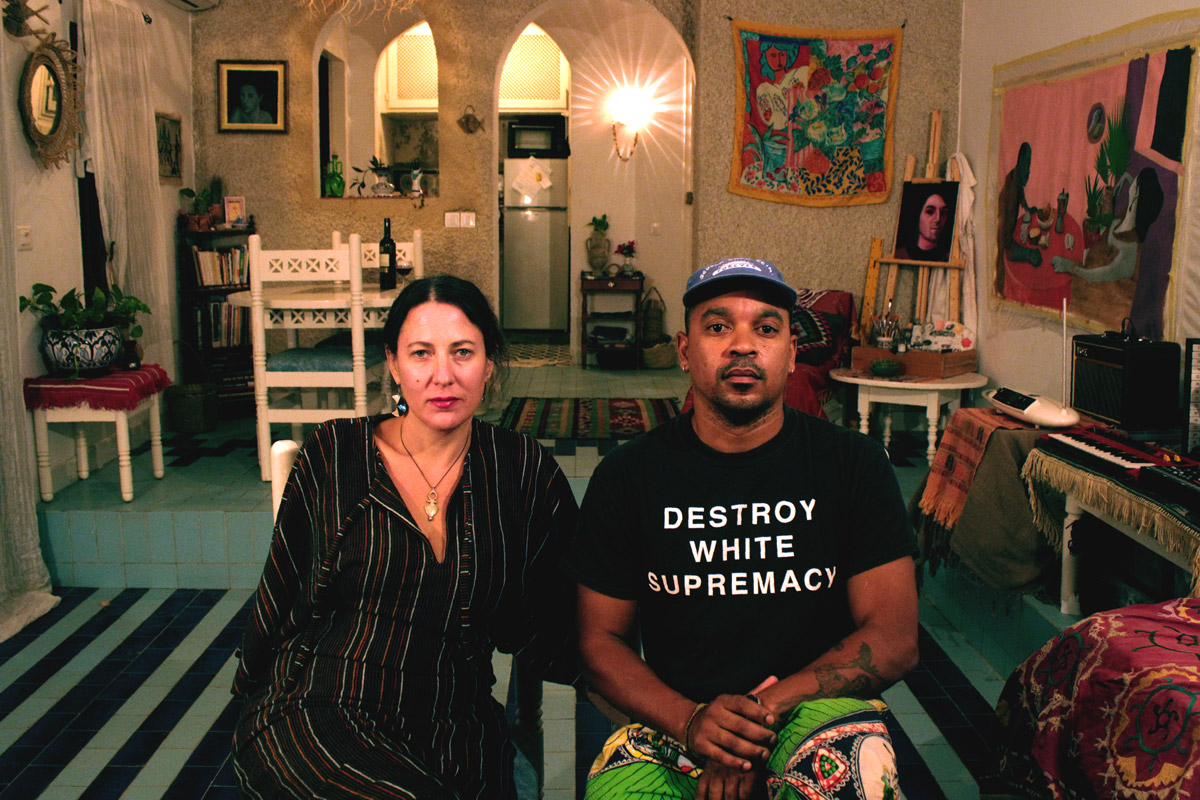This is not a holiday for Vancouver/Tunisia digital nomads (or diginoms as they would say) Cult Babies. Hasan and Layla, the key creatives behind the project, had spent well over a year crafting their latest release, Not a Holiday, when the carefully considered concept behind the album became hyper-relevant in a wholly unexpected way. Having initially planned a summer tour prior to the release of the album, Hasan and Layla found themselves on an elongated lockdown stay with Hasan’s family in the Caribbean. With the majority of the album written and recorded, they shifted course and opted to release Not a Holiday in the early days of the lockdown. Layla and Hasan joined me over video call in early October, from Tunisia, to discuss the strange and unanticipated prescience of their new project — as well as the role their day jobs played in its inception.
Not a Holiday is an unyielding and tempestuous album, drawing from a droning, psychedelic palette to create an ever evolving miasmic swirl of  sound. There’s an underlying sense of yearning and hope here — first audible in opener “Buried Alive,” a somewhat fatalistic reminiscence on finding purpose. There’s the somewhat flippant, singsong recital of “I can be your very own ghoul,” which leads into triumphant swells of guitar, ebbing and flowing throughout the song. This initial glimmer of hope and agency lays at the very core of the album itself, written as a reflection upon Hasan and Layla’s experiences as professional internet moderators. Though neither has had the misfortune of auditing video content, the recent lawsuit filed by YouTube censors has brought to light the personal torment undertaken by those who dedicate their careers to the creation of a healthier internet. Technology, and its capacity to simultaneously connect and distance — to create distinct communities and turn them against each other – is a constant theme. Over wistful woodwinds, the spring-reverb doused vocals of “Eye Was There” evoke simultaneous pressures of ingrained spectatorship and desperation for attention as Hasan sings, “Look at what you’ve done/ You went outside all on your own/ With no one there to see/ You might as well have stayed at home.”
sound. There’s an underlying sense of yearning and hope here — first audible in opener “Buried Alive,” a somewhat fatalistic reminiscence on finding purpose. There’s the somewhat flippant, singsong recital of “I can be your very own ghoul,” which leads into triumphant swells of guitar, ebbing and flowing throughout the song. This initial glimmer of hope and agency lays at the very core of the album itself, written as a reflection upon Hasan and Layla’s experiences as professional internet moderators. Though neither has had the misfortune of auditing video content, the recent lawsuit filed by YouTube censors has brought to light the personal torment undertaken by those who dedicate their careers to the creation of a healthier internet. Technology, and its capacity to simultaneously connect and distance — to create distinct communities and turn them against each other – is a constant theme. Over wistful woodwinds, the spring-reverb doused vocals of “Eye Was There” evoke simultaneous pressures of ingrained spectatorship and desperation for attention as Hasan sings, “Look at what you’ve done/ You went outside all on your own/ With no one there to see/ You might as well have stayed at home.”
These criticisms are not distinct of the internet age (see David Foster Wallace’s E Unibus Pluram for parallel commentary nearly three decades earlier), but the latter half of the setlist shifts focus to an entirely modern phenomenon: the dominance of disinformation. Both the whirling ambient hums of “Town Crier,” and the creeping organ lines of “Spiterman,” serve to deliver tales of personality cult and insidious mistruths. These songs are hard to breath through. Deep and dark and entrancing — like the beautiful fading image of a mermaid dragging you down, down, down; eyes glittering in the refracted moonlight.

This final descent is prefaced by the funerule chiming of the duet “Not A Holiday.” This song feels trapped, buried by its own choices, framing its subjects as martyrs with lines like “I’ve been working on my immolation pose/ It’s not a holiday/ But you should have a party in my honor.” Is this futility, that even if we sacrifice ourselves, we may yet fail to steer the course of the future? Perhaps, but the fight, though it is not a holiday, will always be worth fighting. Though Layla and Hasan have long worked from home, and spend their time in the well-toured streets of Tunisia, it is not a holiday. Though many of us have been sent home from work indefinitely, have been confined by leisure, and enraptured in forum-bred paranoia —this is not a holiday.


